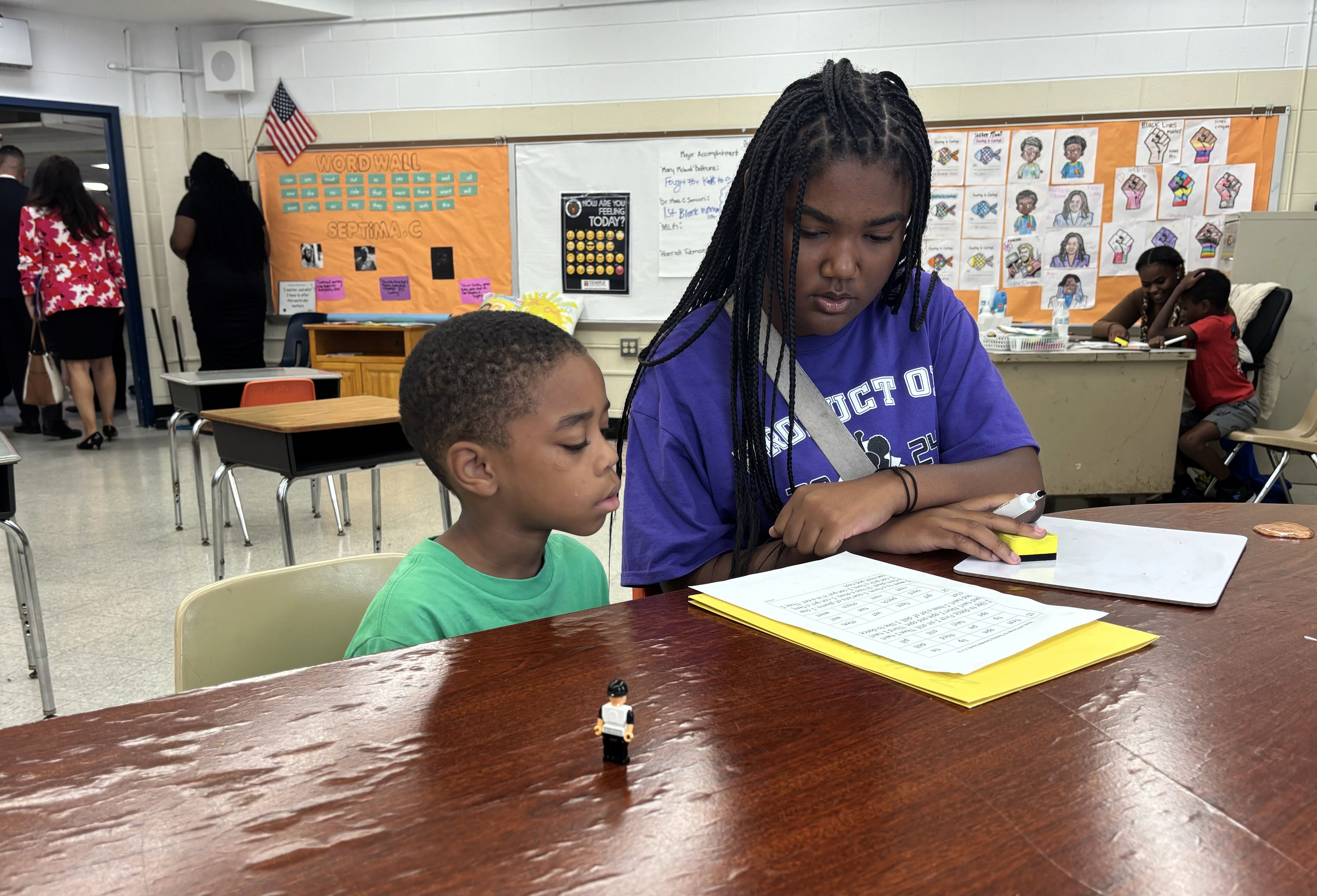
Seminar on Empathy and Engaged Youth Citizenship at Penn State
Overview of the Event
Penn State University recently hosted a seminar titled “Empathy and Engaged Youth Citizenship: What it Means and Why it Matters.” The seminar featured international visiting scholars Pat Dolan, Professor and UNESCO Chair Emeritus at the University of Galway in Ireland, and Sean Campbell, CEO of Foroige, Ireland’s largest youth development organization.
The event was hosted by Mark Brennan, Professor and UNESCO Chair on Global Citizenship Education for Sustainable Peace through Youth and Community Engagement at Penn State. It was co-sponsored by the Edna Bennett Pierce Prevention Center, the Education, Development and Community Engagement Program in the College of Agricultural Sciences, the Clearinghouse for Military Family Readiness, and Penn State Global. This seminar served as a follow-up to the Acting with Empathy event held earlier in Dublin.
Focus on Sustainable Development Goals (SDGs)
The seminar emphasized the critical role of empathy education in achieving several Sustainable Development Goals, including:
- SDG 4: Quality Education – Promoting inclusive and equitable quality education through youth engaged empathy education models.
- SDG 16: Peace, Justice, and Strong Institutions – Fostering peaceful and inclusive societies by enabling prosocial behaviors and social resilience among youth.
- SDG 3: Good Health and Well-being – Enhancing self-resilience and mental well-being through activated empathy and kindness.
- SDG 17: Partnerships for the Goals – Encouraging collaboration between educational institutions and community organizations for sustainable development.
Key Insights from the Seminar
- Empathy and kindness practiced by youth serve as enablers of self-resilience, social support, and positive youth development.
- Sean Campbell presented proven implementation models from Ireland, including youth mentoring and leadership curricula, which have demonstrated success in fostering engaged citizenship.
- The development of a UNESCO Empathy and Engaged Citizenship Observatory is underway, aiming to establish a global framework for youth and civic society engagement.
- Pat Dolan highlighted that empathy is a learnable practice essential for societal progress and called for a social empathy revolution starting with youth education.
Strengthening International Partnerships for Sustainable Development
Collaboration Between Penn State and University of Galway
Pat Dolan’s visit marked a homecoming to Penn State, where he was a Fulbright Scholar in 2021. The seminar underscored the longstanding partnership between Penn State and the University of Galway, which dates back to the 1960s. Collaborative efforts have spanned multiple disciplines, including agricultural sciences, rural sociology, nursing, law, engineering, business, libraries, and sustainability.
In 2024, a memorandum of understanding was signed to further formalize this partnership.
Joint Steering Committee and Strategic Focus
A joint steering committee composed of faculty and global office staff from both universities has been established to identify strategic collaborative opportunities. Key initial focus areas include:
- Youth and community engagement
- Sustainability initiatives
- Business development
Alexandra Persiko, Director of Global Partnerships at Penn State, emphasized the importance of this committee in building a sustainable and strategic partnership that addresses both local needs and global challenges aligned with the SDGs.
Impact and Future Directions
Mark Brennan noted the expanding scope of the partnership, highlighting its transdisciplinary nature that spans over a dozen colleges, departments, and programs at both universities. The collaboration is expected to have significant impacts on research, teaching, programming, and policy development, contributing to the achievement of the Sustainable Development Goals.
Contact Information
For further details about the partnership and initiatives, please contact Alexandra Persiko at axp1225@psu.edu.
1. Sustainable Development Goals (SDGs) Addressed or Connected
- SDG 4: Quality Education
- The article discusses empathy education, youth engagement, and global citizenship education, which align with SDG 4’s focus on inclusive and equitable quality education and lifelong learning opportunities.
- SDG 16: Peace, Justice and Strong Institutions
- The emphasis on empathy, engaged citizenship, social empathy revolution, and sustainable peace through youth and community engagement relates directly to SDG 16’s goals of promoting peaceful and inclusive societies.
- SDG 17: Partnerships for the Goals
- The collaboration between Penn State and University of Galway, including joint steering committees and strategic partnerships, reflects SDG 17’s focus on strengthening global partnerships.
- SDG 3: Good Health and Well-being
- Positive youth development, social support enlistment, and self-resilience mentioned in the article contribute to mental health and well-being, which is part of SDG 3.
2. Specific Targets Under Those SDGs Identified
- SDG 4: Quality Education
- Target 4.7: Ensure that all learners acquire knowledge and skills needed to promote sustainable development, including citizenship and global citizenship education.
- SDG 16: Peace, Justice and Strong Institutions
- Target 16.7: Ensure responsive, inclusive, participatory and representative decision-making at all levels.
- Target 16.6: Develop effective, accountable and transparent institutions.
- SDG 17: Partnerships for the Goals
- Target 17.16: Enhance the global partnership for sustainable development, complemented by multi-stakeholder partnerships.
- SDG 3: Good Health and Well-being
- Target 3.4: Promote mental health and well-being.
3. Indicators Mentioned or Implied to Measure Progress
- Indicators for SDG 4.7
- Proportion of learners demonstrating knowledge, skills, and attitudes for global citizenship and sustainable development (implied through youth empathy education and engagement models).
- Indicators for SDG 16.7 and 16.6
- Level of youth participation in civic activities and decision-making processes (implied by youth engaged citizenship and leadership curricula).
- Measures of social cohesion and prosocial behaviors among youth (implied by empathy education outcomes).
- Indicators for SDG 17.16
- Number and effectiveness of international partnerships and collaborations (implied by the joint steering committee and memorandum of understanding between universities).
- Indicators for SDG 3.4
- Prevalence of positive youth development outcomes such as self-resilience and social support (implied by the seminar’s focus on mental well-being through empathy and kindness).
4. Table: SDGs, Targets and Indicators
| SDGs | Targets | Indicators |
|---|---|---|
| SDG 4: Quality Education | 4.7: Ensure learners acquire knowledge and skills for sustainable development, including global citizenship education. | Proportion of learners demonstrating knowledge, skills, and attitudes for global citizenship and sustainable development (implied). |
| SDG 16: Peace, Justice and Strong Institutions | 16.7: Ensure inclusive, participatory decision-making. 16.6: Develop accountable institutions. |
Level of youth participation in civic activities (implied). Measures of social cohesion and prosocial behaviors among youth (implied). |
| SDG 17: Partnerships for the Goals | 17.16: Enhance global partnerships for sustainable development. | Number and effectiveness of international partnerships and collaborations (implied). |
| SDG 3: Good Health and Well-being | 3.4: Promote mental health and well-being. | Prevalence of positive youth development outcomes such as self-resilience and social support (implied). |
Source: psu.edu







